Maintaining a diverse financial portfolio helps reduce investment risk and generate greater returns. Part of that balanced approach involves including assets that can be quickly leveraged. Basically, things such as money market accounts and certificates of deposit (CDs) are akin to having cash on hand. The major difference is they generate better interest rates than passbook savings accounts.
If you are considering adding a money market or CD as part of your portfolio strategy, it’s essential to understand the choice is not necessarily either-or. Money markets and CDs are both valuable assets with slight differences. Those CD vs money market distinctions could be simplified by just saying one provides steady returns while the other offers flexibility. But a deeper understanding could help you better prepare to build an actionable portfolio that achieves your financial and quality of life goals.
CD vs Money Market Account: Importance of Understanding the Trade-Off Between Steady Returns and Flexibility in Financial Decisions
To say that all investment products are not created equal would be something of an understatement. Each program or investment option is specifically designed to deliver a select number of benefits, over and against a risk threshold. Items like CDs and money markets are considered low-risk opportunities offering more bang for your buck than passive savings accounts.
But by that same token, neither has the potential to double or triple your money, like successful stock purchases and sales. The other side of that coin is stock market investments are unpredictable, and people can sustain crushing losses. When deciding between adding a Certificate vs money market account, carefully weigh the seemingly little differences.
Certificates of Deposit (CDs) For Steady Returns
All things being equal, a Certificate of Deposit typically delivers a higher return on investment than the average money market account. You can onboard a CD at a local lending institution and lock in an interest rate for three months, a year, or even five years or longer. This facet makes them steady earners with calculable returns. Once the CD matures — i.e., completes its time limit — you can withdraw the initial deposit plus the accumulated interest.Money Market Accounts: A Flexible Alternative
A money market account is very similar to a CD, for the most part. You can also walk in and fill out a quick form at a local lending facility or book an appointment through the platform. From there, it’s simply a matter of making an initial deposit, much like you would with a passbook account.
What distinguishes a money market account is the fact you can usually access your money on a need basis. Organizations typically provide check-writing benefits, issue debit cards, and allow digital transactions. Aside from maintaining a minimum balance, you enjoy rare flexibility for a type of savings account that is generating superior interest.
Unlike savings and IRA certificates that do not allow for early withdrawals without penalty, money market accounts allow for up to 3 penalty-free withdrawals monthly and you can make frequent deposits to this account. If needed, you may also order checks for convenient access.
Comparing Returns: CD vs Money Market
As you conduct your due diligence about CDs versus money market accounts, don’t be surprised if financial advice articles oversimplify the return differences. You may discover they break it down to CDs offering higher interest rates and returns than money markets.
At first blush, that is undoubtedly true. When you review the options, CD interest rates are usually higher than money markets. But there’s an element to money markets that sometimes gets overlooked. You can continue to funnel money from your weekly salary into a money market, improving its return over time. A CD is usually a fixed, one-time deposit that generates a set return once it matures. Few CDs allow you to keep easily increasing the balance.
Benefits of Certificates of Deposit
If you like a rate and want to lock it into a savings-based account, a Certificate of Deposit may present the right opportunity. With a CD, the return on investment is generally attractive for such a low-risk investment. These are other benefits people enjoy by incorporating CDs into their portfolio.
- Financial Safety: Certificates of Deposit rank among the safest bets, bar none. Not only are they considered low-risk investments, but the National Credit Union Share Insurance Fund backs depositors up to $250,000 in the event of a financial crisis.
- Compounded Interest: The best CDs offer an Annual Percentage Yield (APY) that compounds interest throughout the year. You may notice periodic CD growth as the compounded interest is added to the CD. The greater the frequency, the better the return when the CD matures.
- Guaranteed Returns: Playing the stock market can be a lot like spending a weekend in Las Vegas. By contrast, CDs deliver steady returns without any surprises.
It’s also essential to note that you can take out multiple CDs with varying maturity dates. Savvy investors check for the best rates and re-invest.
Benefits of Money Market Accounts
When compared to CDs, the critical benefit appears to be the flexible access to cash, or “liquidity,” as financial insiders call it. But when deciding how much to invest in money markets, there are other things to consider. These rank among the reasons working families benefit from money markets.
- Interest Rates: Money markets typically offer better rates than passbook savings accounts, but not usually as high as CDs.
- Online Banking: Depositors have access to mobile tools that allow you to make digital transactions from your phone or other electronic device.
- Real-Time Tracking: Balances and accrued interest can be followed remotely from a convenient, secure app.
Families also use money markets to save for important expenses such as weddings, college tuition, and unexpected emergencies.
Risks and Limitations of CDs and Money Market Accounts
Although the risks of losing your investment hover around zero, as long as the amount remains under $250,000, CDs and money markets tend to place some limitations on depositors. A certificate of deposit account, for example, does not allow free, flexible access to your cash. Withdrawing funds usually results in penalties that effectively derail its purpose.
Similarly, money market accounts usually require depositors to maintain a minimum balance. The threshold isn’t generally difficult to manage. But, high-yield money markets may require more significant minimum balances.
Factors to Consider When Choosing Between CDs and Money Market Accounts
Making an informed decision about CDs versus money markets requires thoughtful consideration. Conduct due diligence about available rates, terms, minimum balances, and check to see if the organization charges fees. The best institutions ask for only necessary fees or waive them entirely.
After you have a good sense of what CD or money market investments serve your purposes, take the time to meet with a professional. Local lenders have the experience and commitment to community to help you through the process
Using Both Options in Your Financial Strategy
As you may see, the CD vs money market discussion is not necessarily an either-or choice. Both savings-oriented options provide excellent benefits and some disadvantages. In terms of building a balanced and diverse financial portfolio strategy, it may be wise to invest in both. The real decision is how much to allot to CDs vs money market accounts. Get in touch with one of our team members to help you get started. Check out our latest rates here.




